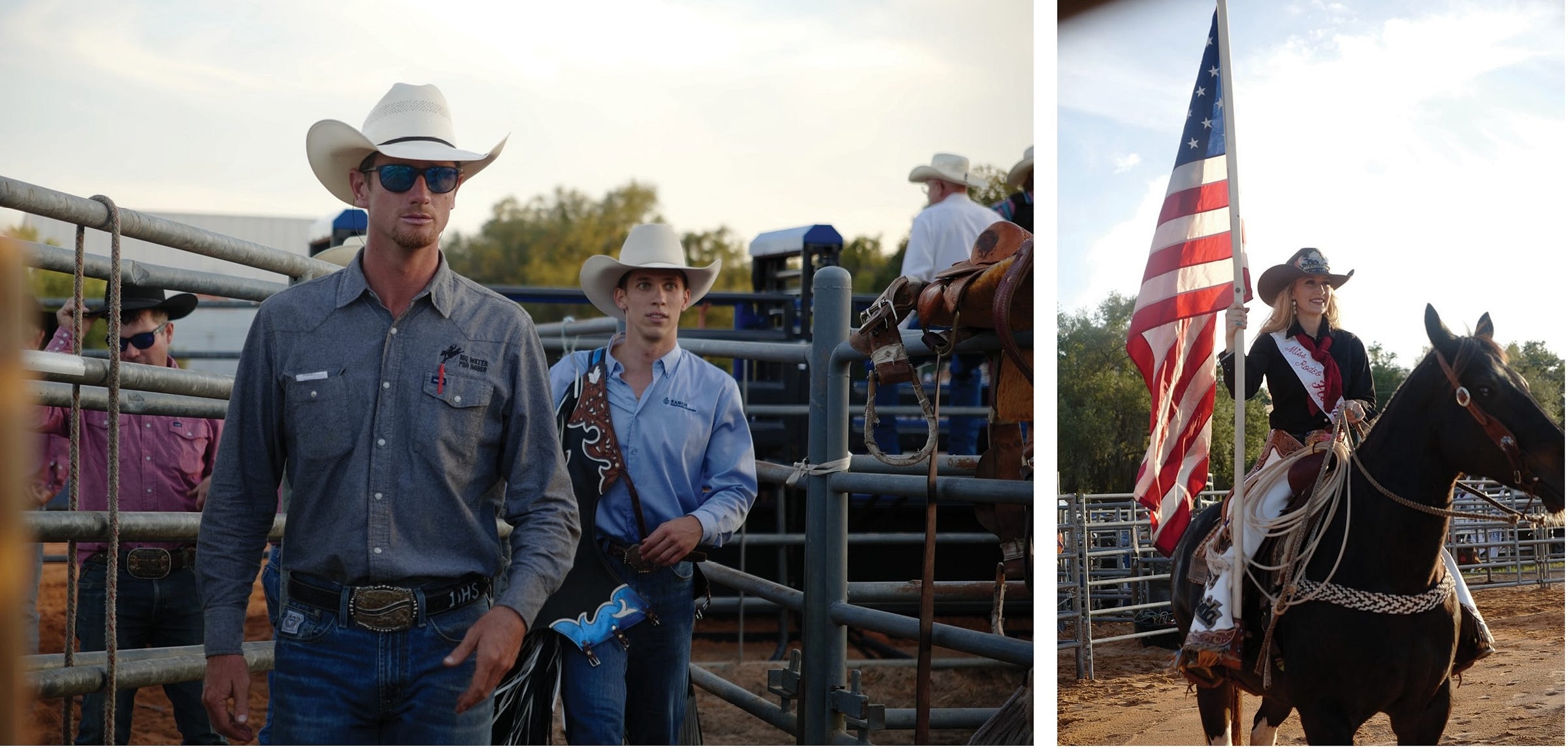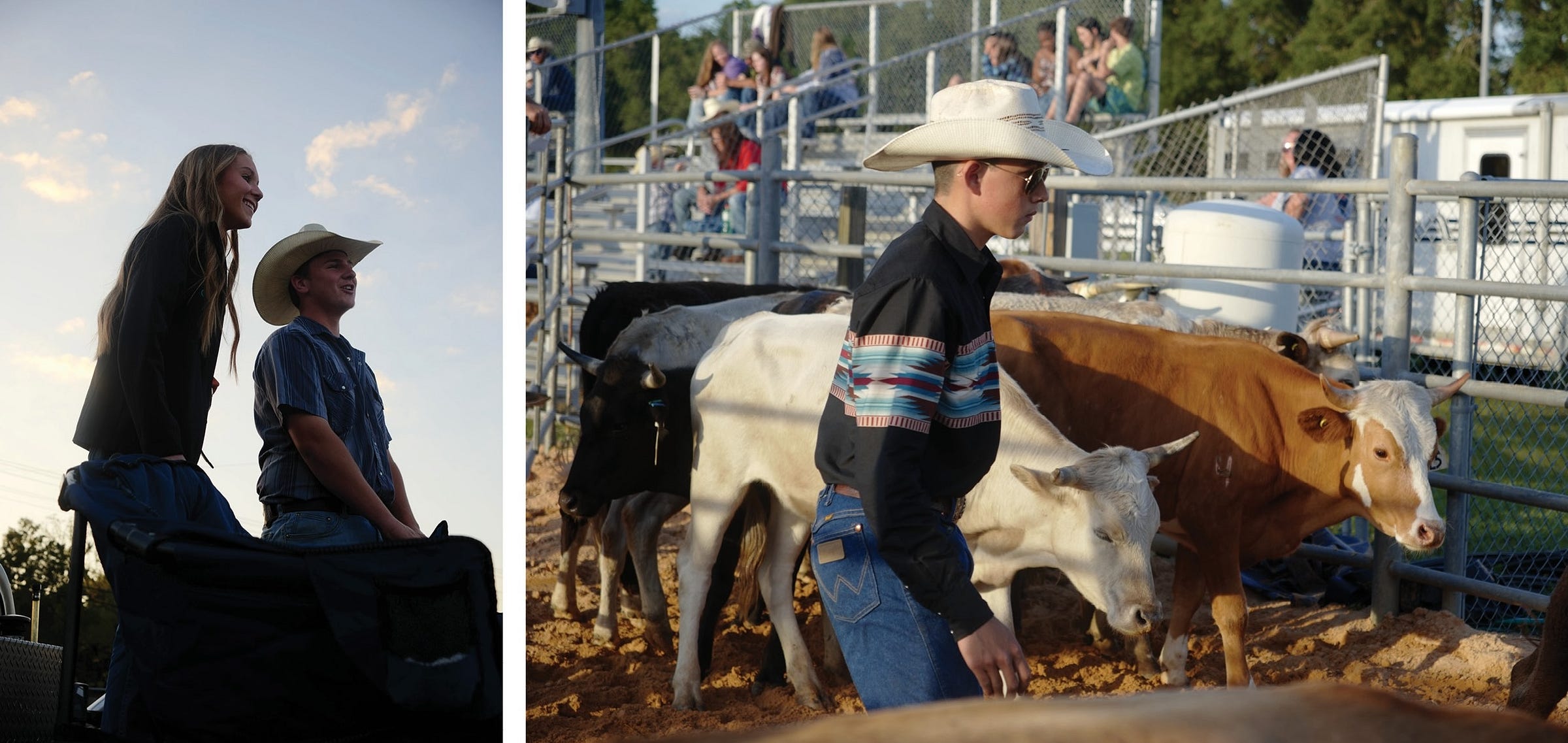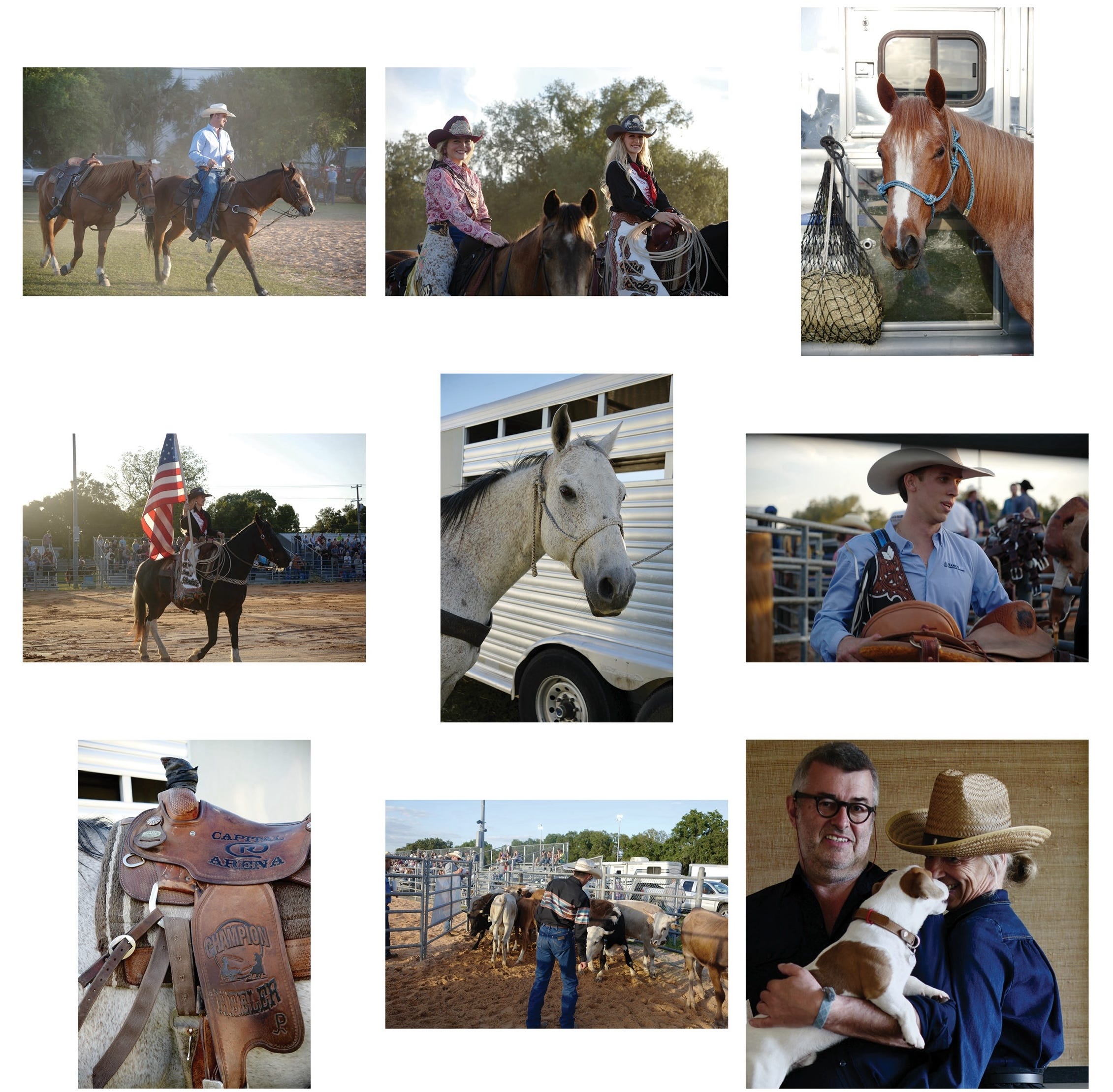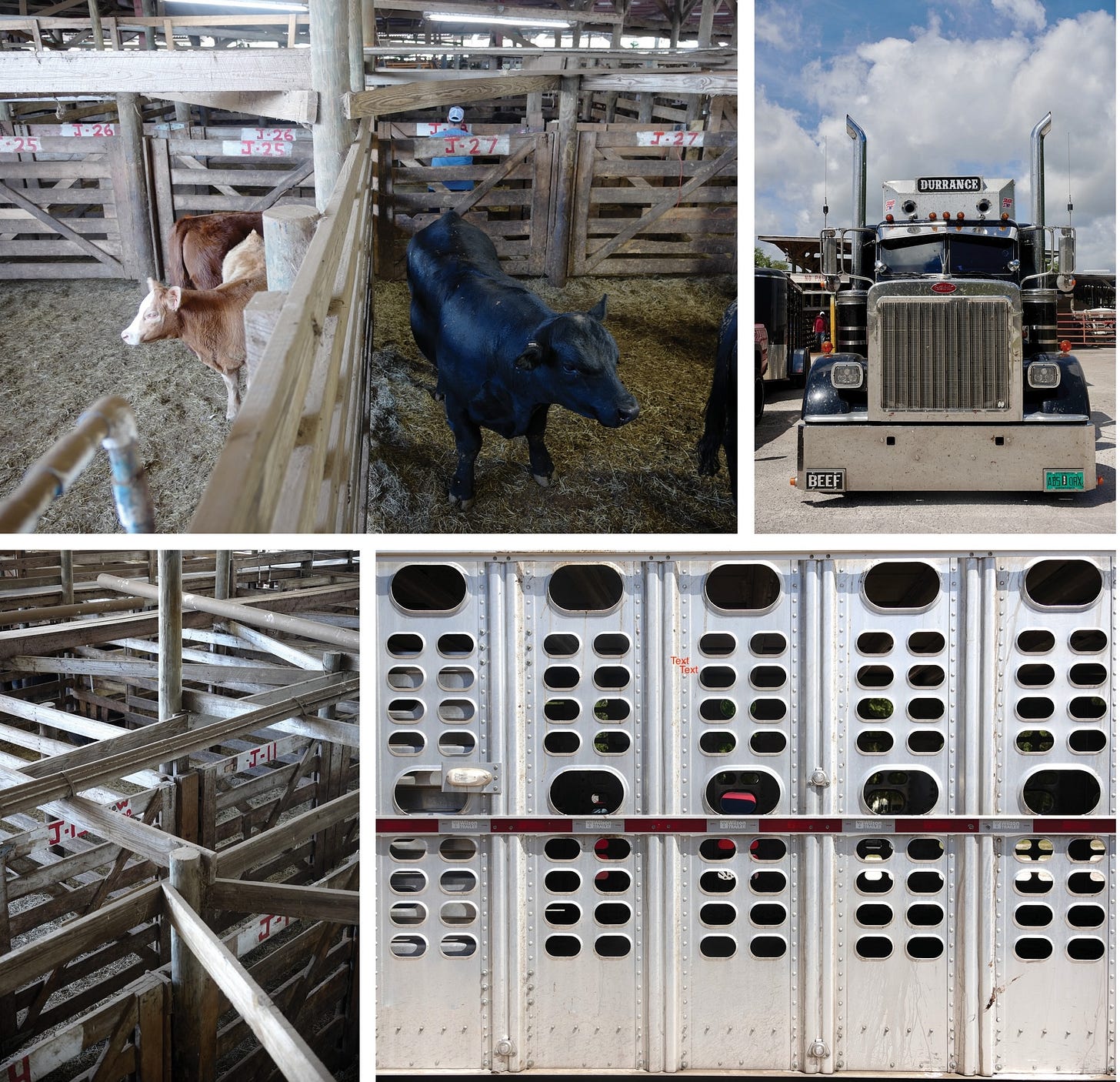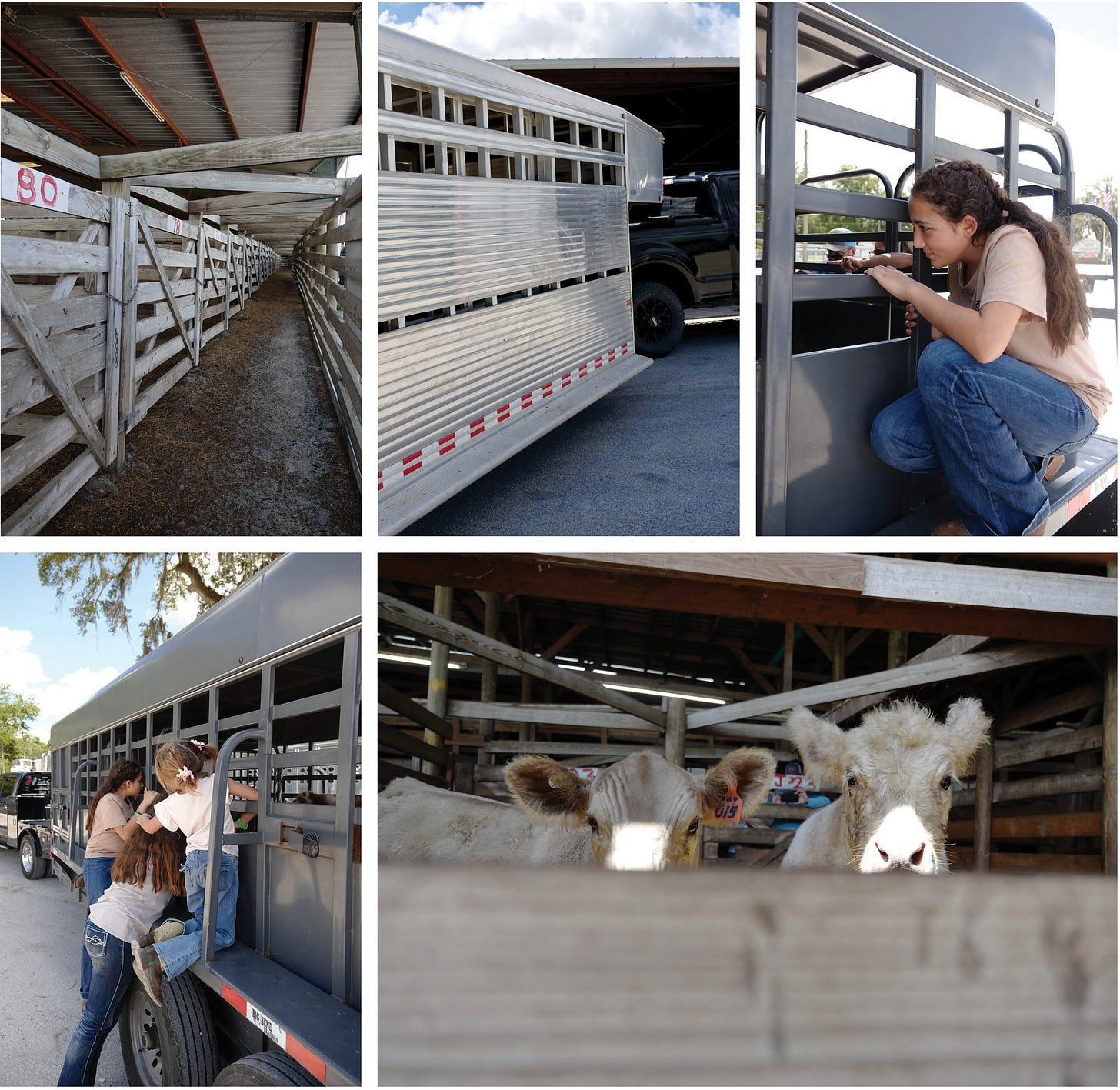Beyoncé or a Bartow Bonanza?
Rural America; them big ideas are buried here.
I may have missed a few, but the first white marker I noticed before reaching Bartow must have been about 15 inches by 25 inches. It was attached to a black steel rod that was hammered into the ground on the side of the road, not higher than a foot off the mown grass. The sign was in a black sans-serif font, reading "brisket."
Ed Ruscha came to mind, but then I saw a second sign, similar in size and execution, at exactly the same height off the grass and distance from the road. It read "chicken." The signs kept coming at perfectly consistent intervals: "pulled pork," "ribs," and "turkey." When we whizzed by a smoker trailer parked by the side of the road, a thin ribbon of smoke rising from its stumpy chimney, my thirst for art gave way to hunger. And a sentiment for roadside marketing.
There's no risk of starvation when you travel in the USA. Driving between the Tractor Supply on the left and Chick-fil-A on the right made me wonder if the live chicks from one ended up conveniently in the sandwiches of the other—a classic case of shortening supply chains. For those who don't know Tractor Supply Company, they sell everything for the farm but tractors. It's like a Chick-fil-A without chicken. Not that I need a tractor. I do admit, however, that a shiny, open station John Deere looks rather virile. A friend of ours has one. He also has lots of girlfriends. I'm sure his popularity is linked to his John Deere.
I wondered what had happened to all the 220 square foot billboards that scream at you in yellow uppercase next to a photo of three healthy, well-fed brothers wearing baseball caps and brandishing giant forks: “AUTHENTIC BBQ, LOW & SLOW. SAVE ROOM FOR SECONDS”.
But just as I started to despair, the Bartow Rodeo billboard came up. It had it all: a bold red uppercase "WEIKERT FORD" proudly presenting the curved "CITRUS ROUNDUP" in blue over a pink dropshadow. Big, extremely compelling, and irresistible. And easy enough to get to if you followed the stream of huge pickup trucks, each pulling a 30-foot polished aluminum gooseneck horse trailer.
There was no barbecue at the rodeo. There was no beer, either. Toned women were barrel racing pintos in spotless slim-fitted shirts, tapered at the waist and chest. Handsome men in jeans and chaps were roping calves. Blonde and wavy-haired, Miss Rodeo Florida paraded the Stars and Stripes on horseback during the grand entry as the audience stood and sang the national anthem. Stitched leather boots and cowboy hats were all around.
This was a glimpse of rural America that I never read about in the New York Times. A glimpse into the homes of rancher families where kids learn the values of hard work, remuneration, and responsibility through experience. They buy livestock from their pocket money, take care of the animals day after day for the best part of a year, and take them to the local county fair or livestock festival to be judged and sold. The youngest children start with rabbits, then move on to chickens, and eventually graduate to raising steers. There's commitment, pride, and respect. There's the prospect of reward.
The American Dream, portrayed in southern smiles.
But still.
Beyoncé released “Cowboy Carter” on the day of the Bartow Rodeo. Her album opens with “American Requiem”:
Nothin' really ends.
For things to stay the same, they have to change again
Hello, my old friend
You change your name, but not the ways you play pretend
American Requiem
Them big ideas (Yeah), are buried here (Yeah)
Amen.
Is it time to face the wind?
Contributors:
Hans Pauwels, words - Reinhilde Gielen, photographs


